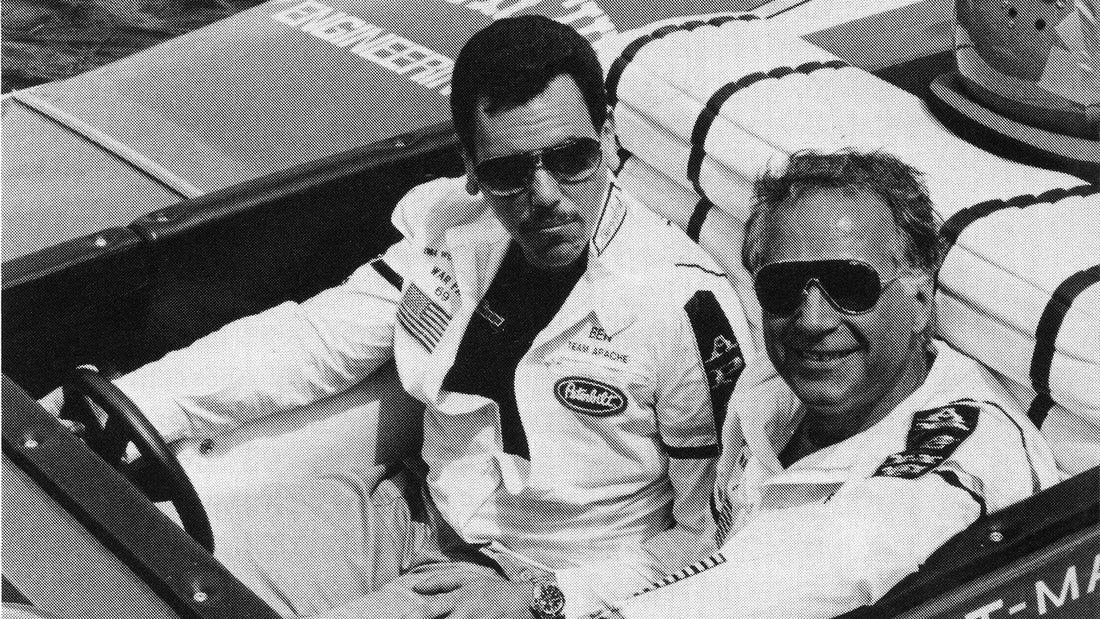
Excerpt from Paradise Lost: The Rise and Fall of Ben Kramer. Read the full story in VÉHICULE.
American powerboat racing champion Benjamin Barry Kramer hates when people smoke cigarettes around him. At a concert in his hometown of Hollywood, Florida in the early 1970s, he went around the crowd pulling them from peoples’ mouths with only the words “You’re a fucking asshole” as explanation. It was an abrasive yet oddly charming act—a characterization that can be applied to his demeanor as a whole. He had no problem making himself known wherever he went, either by means of his off-kilter charm, his straight talk, or his bombastic individualism. Like any successful sportsman, he always gave his all and always needed to win, giving him an instant leg up in any endeavor that he sought to undertake—whether it was operating a marina, providing for his family, or taking on the midnight ocean at triple-digit speeds.
At press time, Kramer has been engaged in legal battles for longer than he was ever a free man. He has been behind bars since the late 1980s serving multiple sentences, the longest of which is life. The convictions against him are threefold and have varying degrees of truth to them—racketeering, tax violations and manslaughter. While even those closest to him will admit that he wasn’t entirely without fault, Kramer’s fate is one that traces a narrative of high-level abuses of power, corruption and personal vendettas waged over the course of years. There seems to be no end in sight.
Was Kramer meant to be the government’s example—a one-man, non-consenting, scared-straight program meant to show the masses what sidestepping the law could get you? If he were meant as such an example, why does he only appear as a footnote in publications, write-ups and news briefs about peers from his South Florida microcosm? Over the years, there have proven to be far less sympathetic characters whose stories of redemption have been plastered on newsstands. They’ve been positioned as bearers of thrilling stories about a time long past. They say that they’ve changed, and they have the high-budget photoshoot to prove it.
Benjamin Barry Kramer was born in 1954 in Hollywood, Florida, a city just north of Miami. Named in the 1920s for the still-nascent development in California, Hollywood gained a reputation as a refuge for northerners looking for a winter escape. It was this very thought process that first brought Ben’s parents down from Philadelphia. By the time Ben was five years old, his father Jack made the call to move the family back to his hometown and took up operation of an insurance agency along with his father and brothers. Shortly thereafter, a friend of Jack’s invited him to help run a small lighting business in the city. Jack’s business acumen quickly drove the shop’s profits to record highs. By 1966, Jack decided to bring his expertise back down south, once again relocating his family. Jack also brought his newfound wealth with him, purchasing a modestly distinguished home in Hollywood’s high-rent district. This new property came equipped with its very own dock.
By sixteen, unhappy with his new surroundings, Ben took up a pastime common in the early ‘70s and started selling weed. He was good at it, too, having inherited a keen sense of salesmanship from his father. Although the two had that in common, they didn’t necessarily get along and Jack kicked Ben out of the family house. Ben was more of less emancipated at that point anyway—by 17, he was doing well enough on his own to buy his very first boat. While his disdain for tobacco cigarettes was strong, he couldn’t help but lust after the powerboats by the legendary Cigarette Racing Team, headed up by the equally legendary Don Aronow.
This would be the first of many purchases that straddled the line between business and pleasure, often disregarding the boundary between the two completely. While Ben knew from early on that going fast was his true passion, this bright yellow Cigarette was also the perfect tool for growing his budding business. Rather than relying on a Florida-based supplier for his product, he could go straight to the source, cutting out the middlemen and taking control of everything from purchasing, transporting and distributing—vertical integration at its finest. He knew that this was a risk, but “risk” and “challenge” were synonymous in Ben’s book. And he loved a challenge.
This plan was going well until it wasn’t. It hit its first snag in 1974 when nineteen- year-old Kramer got himself arrested in a sting operation set up following an anonymous tip. He pled guilty the following year and got four years of probation—at that point, everyone knew that staying clean in the eyes of the law for a whole 48 months would be a challenge for Kramer.
The sound of a Cigarette is unmistakable. Whether it’s pinned at full chat or idling up to the dock, you barely need to glance over to understand what you’re dealing with. It’s like a sixth sense. The deep, bone-rattling rumble of a Mercury V8 paired with the gentle yet brutal sound of fiberglass cutting through water forms an unlikely harmony that can only be described as intoxicating. It’s a soundscape that people furiously chase, sparing no expense (financial or otherwise) in the process.
It was that particular sound that alerted a private community’s security guard in the summer of 1975 when he took notice of two go-fast boats edging up to the shoreline. These guards’ jobs were fairly dull until they suddenly weren’t. Much of their day-to-day was sitting in a booth and lifting a gate to let in endless streams of Mercedes-Benz-driving residents. Later in their shift they could be found driving at walking pace through the community, on the hunt for anyone who looked like they didn’t belong. Miami was also undergoing a period of intense violence, ramping up to it earning the title of the country’s murder capital.
The positioning of these two boats, in concert with the unnaturally early hour, could only spell drug running. The police showed up and those at the scene fled, leaving behind a pickup truck and the 1,400 pounds of cannabis bundles that they were loading into it. Of those who vacated, one person was found not far from the original scene hours later. When put under pressure, he broke nearly immediately—the Drug Enforcement Agency had only been founded two years earlier, but a few years of practice as the short-lived Bureau of Narcotics and Dangerous Drugs, and prior to that as the Federal Bureau of Narcotics, made them well-versed in the art of forceful intimidation.
The kid that the DEA caught admitted to his association with Kramer while making sure to be clear that he was only a grunt operating on Ben’s behalf. This discovery warranted a visit to Jack Kramer’s residence, who redirected the agents to his son’s known associate’s home. Ben only needed to hear the authoritative knock on his friend’s front door to know that he had to make a run for it. Tearing through the tangible heat of a Florida summer’s morning, he made his way to the house’s back door only to be intercepted by his soon-to-be arresting officers.
The DEA’s report has Kramer reacting to his arrest with his own brand of cocky bravado. He told the agents that he knew they didn’t make much and that he was confident that $100,000 would make quite a difference in their lives. That’s how much they would stand to make if they were to look the other way on this little mishap of theirs. They didn’t accept the offer.
Kramer did make use of that $100,000 eventually—he took that cash and bonded out of jail with it, instantly making the call that he wasn’t going to show up for his resultant court date scheduled for the early fall of that year. At that moment, he went from being a guy with a court date to a fugitive in the eyes of the law.
Read more about the rise and fall of Kramer and Aronow in VÉHICULE. #FREEBENKRAMER





